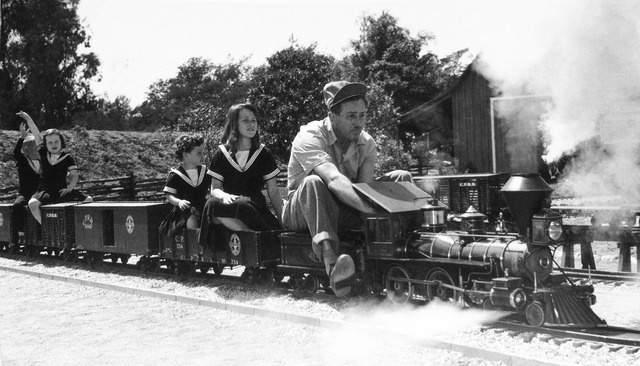The Language of the Hand and Walt Disney’s Train
Hello everyone, and the happiest of New Years to you all. We’ve all overdue for a good year, so with fingers liturgically crossed and prayers uplifted....

From John Bulwer’s Chirologia, or the Natural Language of the Hand (1644) — thanks to Richard Gibson for the link.
-
My chief New Year’s resolution is to eliminate the typos from this newsletter.
-
Last week I linked to my essay for newyorker.com on Thomas Merton. That published version is considerably shorter — perhaps better, but definitely shorter — than what I sent the editors. I posted that longer version here — using, by the way, a delightful service called text.fyi, “the dumbest publishing platform on the web”. You shouldn’t post anything on txt.fyi that you don’t have backed up elsewhere, and you can’t take down anything you post there (at least, not as far as I can see), or even edit it once it’s posted, so text.fyi definitely not for every use case. But in some situations it’s just the right thing.
-
If you ever think that a writer is wrong about anything and think you might want to inform said writer, then I have provided a handy flowchart for you. (I’m not saying that this is related to the previous item, but I’m also not not saying it.)
-
I have some thoughts about an excellent new book called Science and the Good. It’s a patient, thorough, fair-minded inquiry into a question that’s becoming increasingly important: Can science set our my, and your, and our, moral compass?
Some reflections on the state of the internet:
- Max Read: “What’s gone from the internet, after all, isn’t ‘truth,’ but trust: the sense that the people and things we encounter are what they represent themselves to be. Years of metrics-driven growth, lucrative manipulative systems, and unregulated platform marketplaces, have created an environment where it makes more sense to be fake online — to be disingenuous and cynical, to lie and cheat, to misrepresent and distort — than it does to be real. Fixing that would require cultural and political reform in Silicon Valley and around the world, but it’s our only choice. Otherwise we’ll all end up on the bot internet of fake people, fake clicks, fake sites, and fake computers, where the only real thing is the ads.”
- The debate over whether government officials can block people on social media is a reminder of how confused we still are about the big social media platforms: they are privately held for-profit companies that we want to treat like public utilities.
- The felt need to kill time and fill silence.
Walt Disney once built a (rideable!) miniature railroad in his back yard.

If you’d like to dig into some subjects, I organize both my Pinboard (“antisocial bookmarking”) page and my personal blog with tags. Here are what I believe to be some of the more interesting tags:
- bookart (blog)
- ruskin (John Ruskin, that is — blog)
- architecture (blog)
- atheism (Pinboard)
- attention (Pinboard)
- education (Pinboard)
The Scotsman says my book The Year of Our Lord 1943 is “a stunning account.” And would a Scotsman leads you astray? Also, I had a lovely conversation with Crawford Gribben about the book, and you may listen to that conversation here.